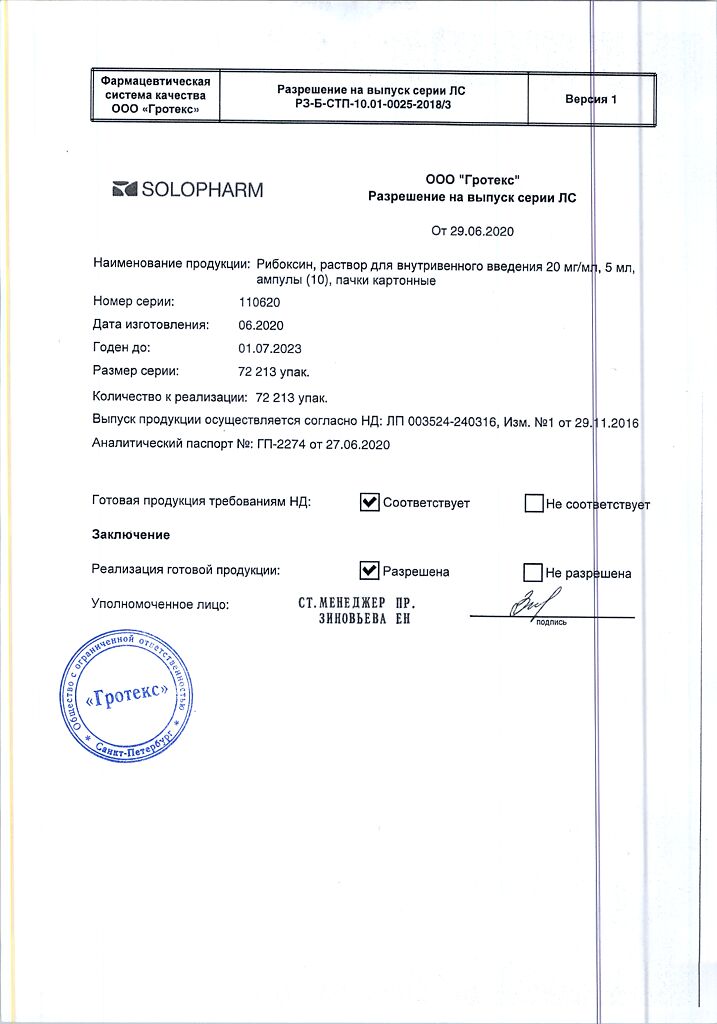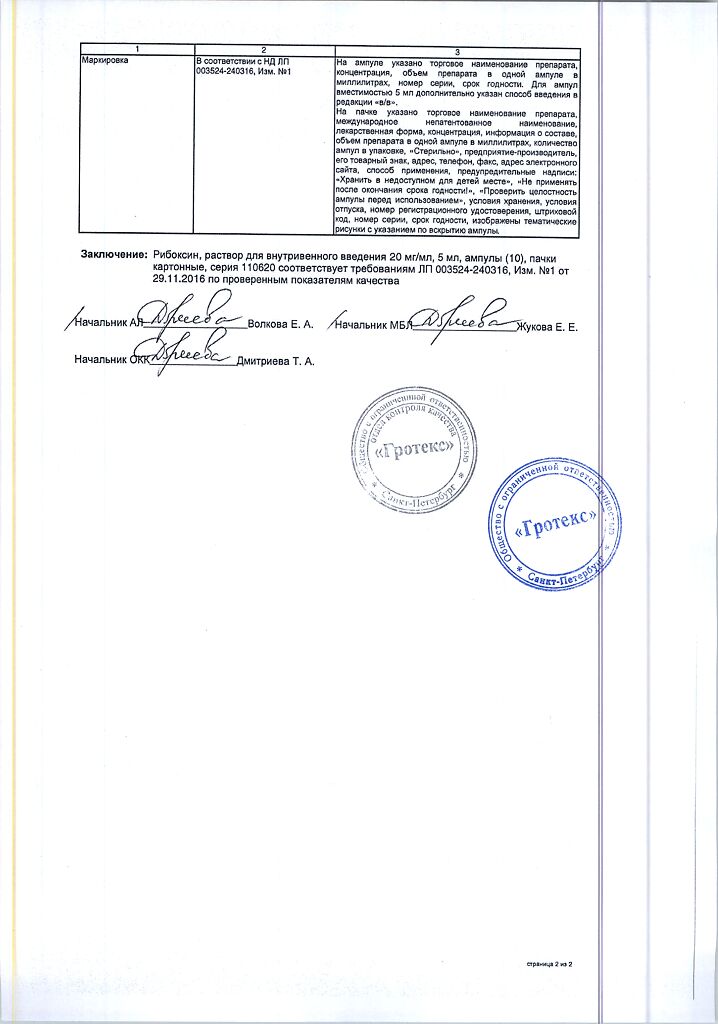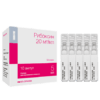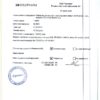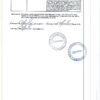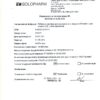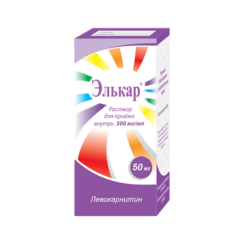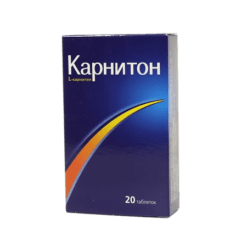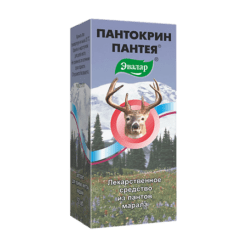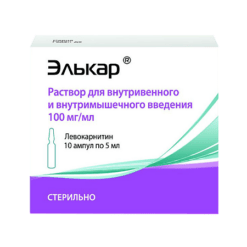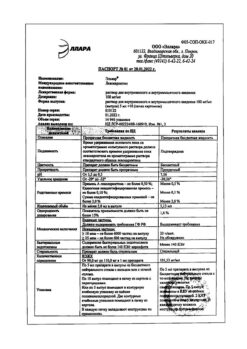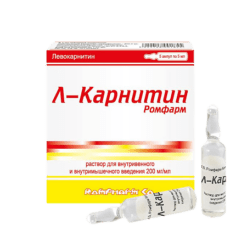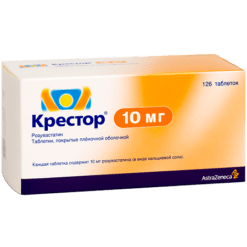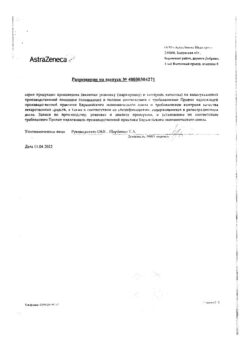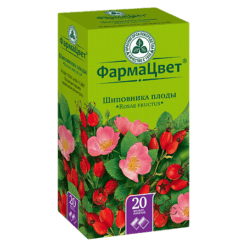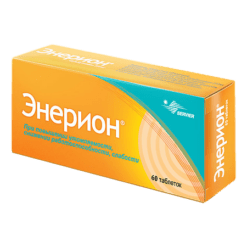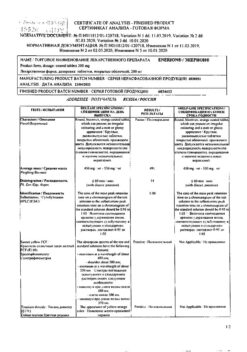No products in the cart.
Riboxin, 20 mg/ml 5 ml 10 pcs
€6.00 €4.64
Description
Riboxin is a derivative (nucleoside) of purine – a precursor. adenosine triphosphate (ATP). It belongs to the group of drugs that stimulate metabolic processes.
It has antihypoxic and antiarrhythmic action. Increases myocardial energy balance, improves coronary circulation, prevents consequences of intraoperative renal ischemia.
It is directly involved in glucose metabolism and promotes the activation of metabolism in hypoxia and in the absence of ATP. It activates pyruvic acid metabolism, which is necessary for normal tissue respiration, as well as promotes activation of xanthine dehydrogenase.
Stimulates the synthesis of nucleotides and increases the activity of some enzymes of the Krebs cycle. By penetrating into cells it has a positive effect on metabolic processes in the myocardium; it increases strength of heart contractions and promotes more complete myocardial relaxation in diastole, resulting in increase of stroke volume.
The mechanism of antiarrhythmic action is not fully understood. Reduces platelet aggregation, activates tissue regeneration (especially myocardium and gastrointestinal mucosa).
Indications
Indications
— complex treatment of myocardial infarction, coronary heart disease, cardiac arrhythmias caused by the use of cardiac glycosides against the background of myocardial dystrophy after infectious diseases;
– liver diseases (hepatitis, cirrhosis, fatty degeneration);
— operations on an isolated kidney (as a means of pharmacological protection when turning off blood circulation).
Pharmacological effect
Pharmacological effect
Riboxin is a derivative (nucleoside) of purine – a precursor. adenosine triphosphate (ATP). Belongs to the group of drugs that stimulate metabolic processes.
Has antihypoxic and antiarrhythmic effects. Increases the energy balance of the myocardium; improves coronary circulation, prevents the consequences of intraoperative renal ischemia.
It is directly involved in glucose metabolism and promotes the activation of metabolism under hypoxic conditions and in the absence of ATP. Activates the metabolism of pyruvic acid, which is necessary to ensure the normal process of tissue respiration, and also promotes the activation of xanthine dehydrogenase.
Stimulates the synthesis of nucleotides, enhances the activity of some Krebs cycle enzymes. Penetrating into cells, it has a positive effect on metabolic processes in the myocardium, increases the strength of heart contractions and promotes more complete relaxation of the myocardium in diastole, resulting in an increase in stroke volume.
The mechanism of antiarrhythmic action is not completely clear. Reduces platelet aggregation, activates tissue regeneration (especially the myocardium and gastrointestinal mucosa).
Special instructions
Special instructions
Riboxin is not used for emergency correction of cardiac dysfunction.
If itching and hyperemia of the skin occurs, treatment with the drug should be discontinued.
During long-term treatment, it is advisable to monitor the concentration of uric acid in the blood and urine.
Active ingredient
Active ingredient
Inosine
Composition
Composition
1 ml – inosine 20 mg
Excipients:
hexamethylenetetramine 2 mg,
sodium hydroxide solution 1 M to pH 7.8-8.6,
water for up to 1 ml.
Contraindications
Contraindications
– gout;
– hyperuricemia;
– pregnancy;
– lactation period;
– age under 18 years (efficacy and safety have not been established);
– hypersensitivity to the drug.
With caution: renal failure.
Side Effects
Side Effects
Allergic reactions: skin itching, skin hyperemia (the drug should be discontinued).
Rarely: increased concentration of uric acid in the blood, exacerbation of gout (with long-term use).
Interaction
Interaction
Immunosuppressants reduce the effectiveness of Riboxin.
When used together with cardiac glycosides, the drug can prevent the occurrence of arrhythmias and enhance the positive inotropic effect.
Overdose
Overdose
Currently, no cases of overdose have been reported.
Manufacturer
Manufacturer
Grotex LLC, Russia
Additional information
| Manufacturer | Grotex Ltd, Russia |
|---|---|
| Medication form | solution |
| Brand | Grotex Ltd |
Related products
Buy Riboxin, 20 mg/ml 5 ml 10 pcs with delivery to USA, UK, Europe and over 120 other countries.


